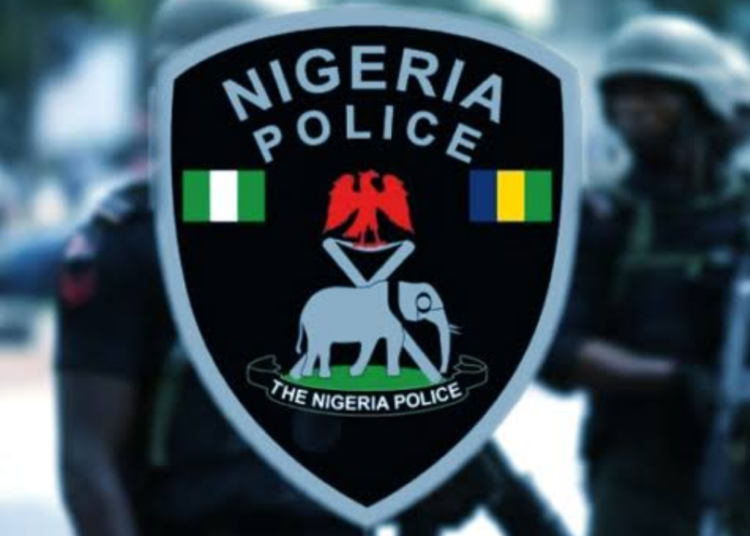Recently, the affairs of the Nigerian Police came under close scrutiny over concerns regarding 178,459 missing firearms and allegations of N1.1 billion contract splitting within the force.
The 2019 Auditor-General’s report indicated that as of December 2018, 178,459 firearms were unaccounted for, including 88,078 AK-47 rifles. Additionally, as of January 2020, at least 3,907 assorted rifles and pistols remained missing.
While quizzing the Inspector General of Police, Kayode Egbetokun, on the matter, the Senate Public Accounts Committee gave a breakdown of the missing firearms: 601 from 15 training institutions, 42 from 23 police formations, 1,514 from 37 police commands, 29 from Zone 1 and 721 from Police Mobile Force (PMF) 1 to 68.
The Senate expressed concern that firearms meant for law enforcement could have fallen into the hands of criminals, worsening Nigeria’s security situation.
We know it’s better late than never, but we are nonetheless irked that since the audited report was released and made available in 2019, no panel of inquiry was set up by the previous administration to investigate this weighty issue of national importance.
On the other hand, the 9th National Assembly chose not to stir the hornet’s nest and allowed sleeping dogs to lie instead of weighing in on the issue.
The rate of crime and insecurity in the country is disturbing, defying all odds and every effort by security agencies to combat it and promote peace and stability.
With a crime index of 66.7, the country faces a complex set of challenges, including insurgency, cybercrime, cultism, kidnappings, and communal clashes. In 2024, Nigeria was reported to be the second most dangerous country in Africa for crime, with a crime index score of 66.7.
The country’s vast population, economic disparities, and inadequate law enforcement infrastructure exacerbate the situation, requiring targeted interventions.
However, Nigeria’s increasing insecurity has been linked to the proliferation of small arms within and across the country’s borders.
Only recently, the Nigeria Customs Service (NCS) officially handed over 1,599 assorted arms and 2,298 live cartridges seized during operations in 2024 to the National Centre for Control of Small Arms and Light Weapons (NCCSALW).
Speaking at the handing over ceremony, Comptroller General of Customs, Mr. Adewale Adeniyi, emphasised the critical role of intelligence-driven interventions in safeguarding national security, particularly in light of rising insecurity from armed banditry in the Northwest and the spread of illegal arms in the Southeast.
We recall that a major breakthrough came in May 2018, when Customs intercepted 440 pump-action rifles concealed in 516 bags of Plaster of Paris (POP) cement in a 20-foot container at the Tin Can Island Port. Subsequent investigations led to the discovery of two additional containers (CMAU 189817/8 and GESU 255208/1) similarly packed with arms hidden in sanitary wares.
According to a report released by a geopolitical research agency, SB Morgan, incidences of small arms in the country had led to 676 deaths out of a total of 130 cases between 2019 and the first half of 2024.
Reacting to the Police audit report, Senator Onyekachi Nwebonyi (APC, Ebonyi North) linked the rising insecurity in Nigeria to the missing weapons and warned that the safety of both citizens and the police was at risk.
A review of police records by the committee revealed that out of 3,907 firearms officially listed as missing, only 15 cases involved officers who died or sustained injuries while losing their weapons.
We recall that in October 2024, the National Security Adviser, Nuhu Ribadu, criticised policemen and soldiers who steal arms and ammunition from their formations and sell them to criminal elements.
Egbetokun’s response in his letter to the Senate President, Godswill Akpabio, smacks of nonchalance and a lack of willingness to take responsibility for his men’s actions.
Granted that the malfeasance predates his tenure, but describing the audit report as false, “rooted in factual inaccuracies, did not help the image of the Force.
As a newspaper, the surge in crime underpins the urgent need for comprehensive strategies that address immediate security concerns while tackling systemic socio-economic issues.
Just like every profession, the need for enhanced oversight by the top hierarchy of the Police Force is needed more than ever now.
Expressing dissatisfaction with the police’s response, Senator Adams Oshiomhole (APC, Edo North) insisted that the officers responsible must be identified, arrested, and prosecuted.
He said the least expected is for the force to tell Nigerians that the arms have been traced to officers who were responsible.
We are of the view that these criminal elements in police uniform must be arrested and paraded—just as the police do to ordinary Nigerians. There should be no two sets of laws in this country. Police must account for them, and those responsible must face the law.





